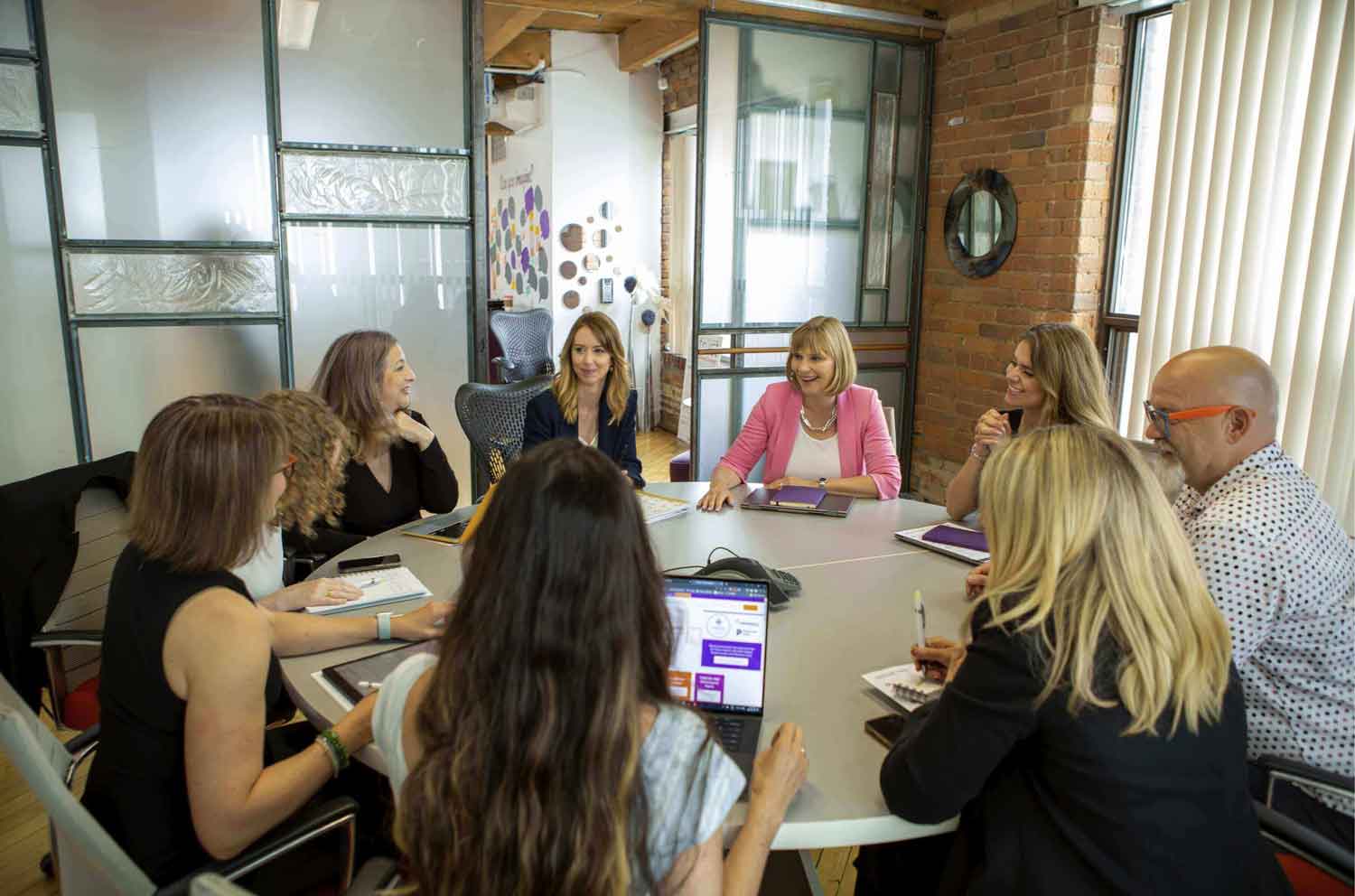Today, June 21, is National Indigenous Peoples Day. This is a day for all Canadians to recognize and celebrate the unique heritage, diverse cultures and outstanding contributions of First Nations, Inuit and Métis peoples. (Here at The Roundtable, we’ve launched #Impact215. As part of our commitment to Making an Impact, we’ve partnered with Indspire on a campaign to fund 215 bursaries to help support indigenous youth pursue higher education. Find out how to help here.)
Recognition and celebration are important steps, however, despite companies having diversity and inclusion policies, there are still issues of wage gaps and a lack of role models or Indigenous representation in the workplace. Although employers support inclusive workplaces, more work is needed to ensure all employees feel seen, heard, and valued.
Too often, managers, colleagues and senior leaders often do not understand how Indigenous People can carry the burden of decades of colonialism, genocide and racism. And there can be blind spots around unconscious bias and microaggressions. (It’s important to recognize that microaggressions – subtle or unintentional acts of discrimination – can occur in the workplace and psychologically impact employees, often leading to feelings of not being connected.)
In fact, a new survey from ADP Canada, reveals most Canadian workers feel comfortable at their workplaces; however, Canadians who indicate they are Black, Indigenous Peoples or people of colour are more likely to report facing workplace challenges that may affect psychological safety – the belief you won’t be punished or humiliated for speaking up, sharing ideas, asking questions, or making mistakes at work.
According to ADP’s survey, despite feeling valued and comfortable at work, the data reveals racialized and Indigenous respondents are nearly twice as likely (36%) as white respondents (21%) to say they feel their colleagues may deliberately act in a way that undermines their efforts at work. This was particularly true for respondents in these groups who identified as men (40%).
When respondents were asked about making mistakes at work, nearly half (49%) of racialized and Indigenous workers said they agreed with the statement that making a mistake at work will be held against them. Respondents in these groups were also more likely (35%) to say it is difficult to ask colleagues or a direct manager for help.
Psychological Safety
Psychological safety is not a “perk”; it’s essential for producing inclusion, engagement and high performance in a VUCA world. Psychological safety is when there is an environment that allows for an individual to take a risk, speak their mind, engage creatively and basically stick their neck out without fear of retribution.
Encouraging an environment that promotes open discussion and action around disadvantage, including microaggressions, and issues of inclusion can help employers create a workplace that promotes psychological safety, a sense of belonging and a culture of advocacy.
In a press release, Heather Haslam, vice-president of marketing at ADP Canada, said strong connections are an indicator of inclusion and employees who feel strongly connected are five-times less likely to be experiencing discrimination at work. “Leaders are responsible for creating psychologically safe spaces that build strong connections, create more inclusive environments and better position opportunities to enhance employee engagement, collaboration and creativity.”
If you’re curious about how The Roundtable can help your organization develop a culture where leaders and their teams can create an atmosphere of psychological safety, let’s start a conversation. And, be sure to download our 2022 L&D Trends Report for more insights into the issues affecting L&D professionals in the year ahead.



